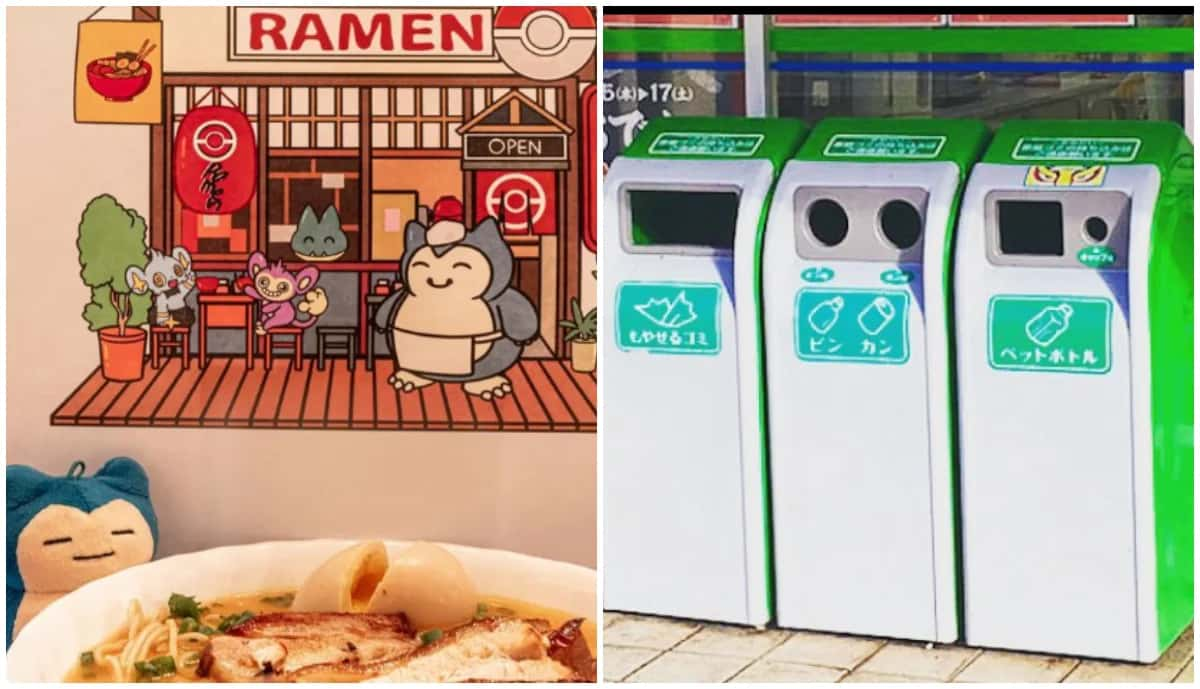Thinking of heading to Japan soon? It’s always good to know some cultural practices beforehand so as to respect the locals and you won’t get a culture shock too. Here are 9 common courtesies you should take note of!
Some of which were shared by Mena! Check out her video here!
1) Queue Culture: The Art of Waiting Respectfully
Japan is known for its queue culture. Whether you’re waiting for public transportation, entering a store, or boarding an elevator, the Japanese value orderly lines and respect personal space. Maintaining a sense of order and patiently waiting your turn is a common courtesy observed throughout the country. So the next time you’re waiting to board a train, don’t forget to join the queue!
2) Greetings and Bowing
Greeting others respectfully is a fundamental aspect of Japanese culture. Bowing, a customary gesture, is used to show respect and acknowledge someone's presence. Whether in formal or informal settings, taking the time to greet others appropriately is highly valued.
3) Dining Etiquette
Japanese dining etiquette embodies a sense of respect and appreciation. Saying "Itadakimasu" before a meal expresses gratitude for the food and those involved in its preparation. Give it a try the next time you’re dining in Japan!
P.S. Waiting for everyone to be served before eating and using chopsticks correctly are also considered polite gestures but don’t be afraid to ask if western cutlery is available!
4) Gift Giving
Gift-giving plays a significant role in Japanese culture. Whether for special occasions or as a token of appreciation, presenting gifts is a common practice. Gifts are often beautifully wrapped and exchanged with both hands. Expressing gratitude upon receiving a gift is considered polite. So if you’re meeting a client or a Japanese friend on your trip, it’s always nice to prepare a gift!
P.S. If you’re a Singaporean, perhaps your Japanese friends might like these iconic gifts!
5) Public Transportation Courtesy
When using public transportation in Japan, courtesy is key. While it may be alright to do so back home, you should not talk loudly on phones or playing music without headphones. Priority seating is reserved for the elderly, pregnant women, and people with disabilities. Being mindful of personal space and refraining from pushing or rushing are important considerations.
6) Punctuality and Respect for Time
Time management and punctuality are highly valued in Japan. Arriving on time for appointments, meetings, or social gatherings is seen as respectful and responsible. Being considerate of others' time and showing up a few minutes early are appreciated gestures. So if you have a reservation or you’re meeting someone, watch the time!
7) Bringing your trash bag
In Japan, you might notice that the availability of public garbage cans is quite limited. You can spot a few public garbage cans at places like train stations and convenience stores, and some vending machines even have designated compartments for PET bottles, bins, and cans. If you can’t find a trash bin, remember to keep your trash with you until you reach your hotel room or return home. It's all part of the adventure!
Say no to tips!
There is no tipping culture in Japan! Which may make the workers confused when you try to offer them more money. More often than not, they wouldn't accept it!
When the food is good, SLURP!
In contrast to Western cultures, slurping is perfectly acceptable when enjoying noodles like ramen, udon, or soba (but not spaghetti) in Japan. It's not only considered a sign of you enjoying the delicious meal, but it also serves a practical purpose. Slurping helps to cool down the hot noodles as they enter your mouth, making for a more enjoyable dining experience. So, don't be shy about embracing this unique cultural practice when savouring your noodles in Japan!
P.S. Looking for halal food in Japan? We have a guide for halal food in Tokyo, Osaka and Kyoto!
In a society that places great emphasis on respect, consideration, and harmony, these common courtesies reflect the Japanese values of mutual understanding and harmonious coexistence. By adopting and appreciating these customs, you can show your respect while experiencing the rich cultural traditions of the country.
Here are the 9 things you should take note of! Which was your favourite?
P.S Thinking of visiting to USJ soon? Here are some tricks to get you the best experience!


